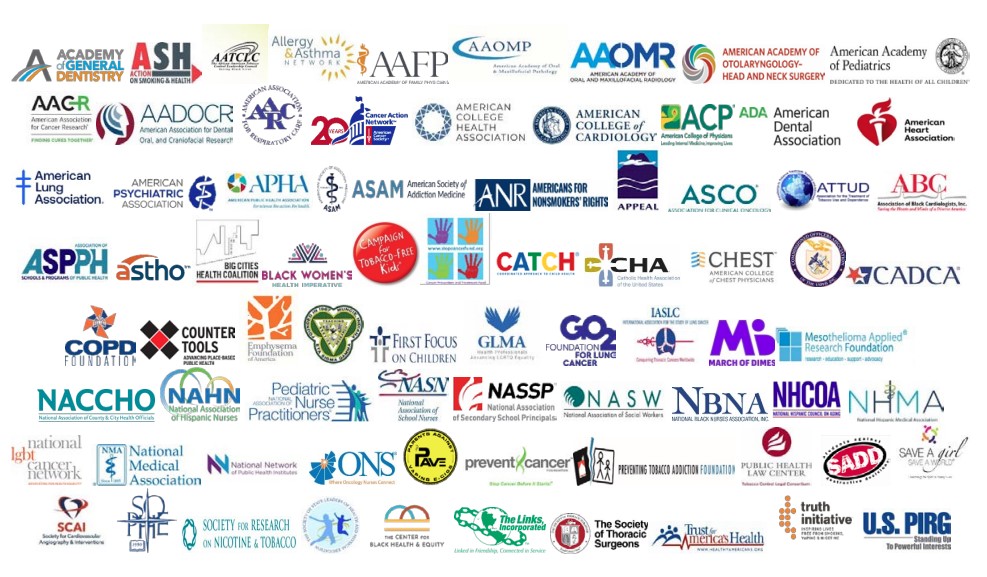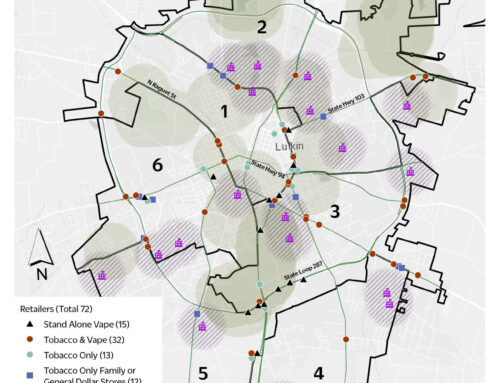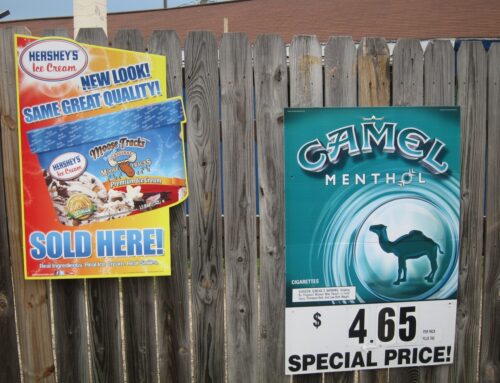Dear Dr. Califf:
The undersigned public health, medical, education and community organizations write to express our support for the Food and Drug Administration’s commitment to issuing proposed rules this Spring to prohibit menthol as a characterizing flavor in cigarettes and prohibit all characterizing flavors in cigars. Once issued, we urge FDA to move quickly to finalize and implement these life-saving rules.
The public health and medical community has long been united in calling on FDA to use its authority under the Family Smoking Prevention and Tobacco Control Act (TCA) to issue product standards ending the manufacture and sale of flavored tobacco products. There is no question that flavored products are particularly attractive to young people, leading to increased tobacco initiation. As FDA already has found, “the availability of tobacco products with flavors at these development stages attracts youth to initiate use of tobacco products and may result in lifelong use.”[1] The FDA/NIH Population Assessment of Tobacco and Health study found that almost 81% of 12-17 year olds who had ever used a tobacco product initiated use with a flavored product.[2]
Among other efforts to call on FDA to take action against flavored products, in 2013 various organizations filed a Citizen Petition urging FDA to remove cigarettes that have menthol as a characterizing flavor. As a result of litigation against FDA brought by the African American Tobacco Control Leadership Council, Action on Smoking and Health, the American Medical Association and the National Medical Association alleging “unreasonable delay” by the agency in addressing the specific issue of mentholated cigarettes, on April 29, 2021, FDA made a public commitment to issue, within one year, proposed rules prohibiting menthol as a characterizing flavor in cigarettes and prohibiting all characterizing flavors in cigars. [3] The undersigned groups are united in urging FDA to fulfill this commitment and issue these proposed rules without delay. This is the only decision consistent with the public health standard set out in the TCA, as well as the relevant science, as FDA itself repeatedly has recognized.
Menthol in cigarettes leads to greater initiation of smoking among youth, makes it harder to quit smoking and has a disproportionate adverse impact on the health of Black Americans. As directed by Congress in the TCA, the Tobacco Products Scientific Advisory Committee (TPSAC) issued a report in 2011 (TPSAC Report), with two primary conclusions: (1) “Menthol cigarettes have an adverse impact on public health in the United States,” and (2) “There are no public health benefits of menthol compared to non-menthol cigarettes.”[4] TPSAC made the following “overall recommendation” to FDA: “Removal of menthol cigarettes from the marketplace would benefit the public health in the United States.”[5]
Two years after issuance of the TPSAC Report, FDA completed its own independent, peer-review evaluation of the available science concerning menthol cigarettes. FDA’s Preliminary Scientific Evaluation of the Possible Public Health Effects of Menthol versus Nonmenthol Cigarettes reached the overall conclusion, consistent with TPSAC’s, that it is “likely that menthol cigarettes pose a public health risk above that seen with nonmenthol cigarettes.”[6]
FDA has never wavered in its conclusion that menthol cigarettes have an adverse impact on public health. Indeed, in November of 2018, then-Commissioner Scott Gottlieb announced the agency’s intention to “advance a Notice of Proposed Rulemaking that would seek to ban menthol in combustible tobacco products, including cigarettes and cigars. . . .,” after expressing his “deep concern” about “the availability of menthol-flavored cigarettes,” which “represent one of the most common and pernicious routes by which kids initiate on combustible cigarettes” and “exacerbate troubling disparities in health related to race and socioeconomic status.”[7]
These conclusions have been bolstered by recent comments filed in the FDA’s Citizen Petition Docket (FDA-2013-P-0435-0001) by a coalition of 68 public health, medical and community organizations; an extensive supplement to the Citizen Petition filed by the petitioners and other public health organizations; separate comments filed by the National Medical Association; comments filed by 46 scientific experts, led by Jonathan Samet, M.D., M.S. the first chair of TPSAC and its chair at the time of the TPSAC report; and comments filed by 23 state attorneys general.[8] As the chief law enforcement officers of their respective states, the attorneys general addressed the tobacco industry’s longstanding assertion that a menthol ban would lead to a burgeoning illicit market. They concluded that “[t]here is little reason to suggest that prohibiting menthol cigarettes will cause the emergence of an illicit market that will threaten the public health gains from prohibiting menthol cigarettes or that state and federal authorities will be unable to prevent the emergence of such illicit activity. The FDA should not be swayed by the tobacco industry’s doomsday predictions of an increase in illicit trade.”
Researchers recently quantified the population harms caused by menthol cigarettes between 1980 and 2018, finding that they were responsible for 10.1 million additional new smokers, 378,000 premature deaths and nearly 3 million life years lost. This amounts to nearly 10,000 premature deaths and over 265,000 new smokers each year over the 38-year period.[9] These findings illustrate the very real cost of FDA’s delays. Due to decades of targeting marketing directed at the Black community, menthol cigarettes have had a particularly pernicious impact on the health of Black Americans; over the same 38-year period, they have accounted for 41% of the premature deaths from menthol cigarettes (157,000 deaths), even though Black Americans constitute only 12% of the population.[10] This disproportionate impact has worsened already serious health disparities.
It is also imperative that FDA fulfill its commitment to issue a rule prohibiting characterizing flavors in cigars. Flavored cigars have proliferated in recent years and are sold in hundreds of kid-friendly flavors like chocolate, cherry dynamite and tropical twist.[11] As a result, cigars are now the second most popular tobacco product among high schoolers and are especially popular among Black youth.[12] Additionally, a new report on premium cigars from the National Academies of Sciences, Engineering, and Medicine concluded that adding flavors to premium cigars could result in greater appeal to nonusers and more frequent use, thereby increasing nicotine intake, addiction potential, and exposure to smoke constituents.[13] The FDA has previously concluded that “all cigars pose serious negative health risks” and that “all cigar use is harmful and potentially addictive.”[14] Indeed, each year about 9,000 Americans die prematurely from regular cigar use.[15] Issuance of both rules will maximize the public health impact and prevent the tobacco industry from selling cigarettes masquerading as cigars. Without a rule prohibiting characterizing flavors in cigars, menthol smokers may shift to using flavored cigars, undermining the public health impact of a menthol cigarette product standard.
If FDA is to adhere to its longstanding commitment to entirely science-based decision-making, it must adhere to its commitment to issue proposed rules by this April and move quickly to finalize a rule to prohibit menthol as a characterizing flavor in cigarettes and all characterizing flavors in cigars. Finally, FDA’s issuance of these rules should be the first step toward a broader set of product standards prohibiting all non-tobacco flavors in all tobacco products.
2022_04_22_Coalition-Letter-Menthol-Action [PDF]

[1] FDA, Advance Notice of Proposed Rulemaking, Regulation of Flavors in Tobacco Products, 83 Fed. Reg. 12,294-95 (March 21, 2018).
[2] Bridget K. Ambrose, et al., Flavored Tobacco Product Use Among US Youth Aged 12-17 Years, 2013-2014, 314 J. Am. Med. Ass’n 17, 1871-3 (2015), https://www.ncbi.nlm.nih.gov/pmc/articles/PMC6467270/.
[3] FDA Press Release, “FDA Commits to Evidence-Based Actions Aimed at Saving Lives and Preventing Future Generations of Smokers,” (April 29, 2021) https://www.fda.gov/news-events/press-announcements/fda-commitsevidence-based-actions-aimed-saving-lives-and-preventing-future-generations-smokers
[4] TPSAC, FDA, Menthol Cigarettes and Public Health: Review of the Scientific Evidence and Recommendations, 2011, https://wayback.archiveit.org/7993/20170405201731/https:/www.fda.gov/downloads/AdvisoryCommittees/CommitteesMeetingMaterials/T
obaccoProductsScientificAdvisoryCommittee/UCM269697.pdf (TPSAC Menthol Report).
[5] Id. at 225.
[6] FDA, Preliminary Scientific Evaluation of the Possible Public Health effects of Menthol versus Nonmenthol Cigarettes, 2013, https://www.fda.gov/media/86497/download (FDA Report).
[7] FDA Statement, FDA Commissioner Scott Gottlieb, M.D. on proposed new steps to protect youth by prevention access to flavored tobacco products and banning menthol in cigarettes, Nov. 15, 2018, https://www.fda.gov/news-events/press-announcements/statement-fda-commissioner-scott-gottlieb-mdproposed-new-steps-protect-youth-preventing-access.
[8] See comments filed in Tobacco Control Legal Consortium, et al – Citizen Petition, April 12, 2013, Docket ID: FDA-2013-P-0435, Prohibit Menthol as a Characterizing Flavoring of Cigarettes and Cigarette Smoke, https://www.regulations.gov/document?D=FDA-2013-P-0435-0001.
[9] Le, TT, “An estimation of the harm of menthol cigarettes in the United States from 1980 to 2018,” Tobacco Control, published online February 25, 2021.
[10] Mendez, D and Le, TT, “Consequences of a match made in hell: the harm caused by menthol smoking to the African American population over 1980-2018,” Tobacco Control, published online September 16, 2021.
[11] Delnevo, CD, Giovenco, DP, & Miller, EJ, “Changes in the Mass-merchandise Cigar Market since the Tobacco Control Act,” Tobacco Regulatory Science, 3(2 Suppl 1):S8-S16, 2017.
[12] Gentzke, A, et al., “Tobacco Product Use and Associated Factors Among Middle and High School Students—National Youth Tobacco Survey, United States, 2021,” MMWR 71(5): 1-29, March 10, 2022, https://www.cdc.gov/mmwr/volumes/71/ss/pdfs/ss7105a1-H.pdf
[13] National Academies of Sciences, Engineering, and Medicine, Premium Cigars: Patterns of Use, Marketing, and Health Effects, Washington, DC: The National Academies Press, 2022, https://doi.org/10.17226/26421.
[14] 81 Federal Register 29020, 29022 (May 10, 2016).
[15] Nonnemaker, J, et al., “Mortality and Economic Costs from Regular Cigar use in the United States, 2010,” American Journal of Public Health 104(9):e-86-91, September 2014.





